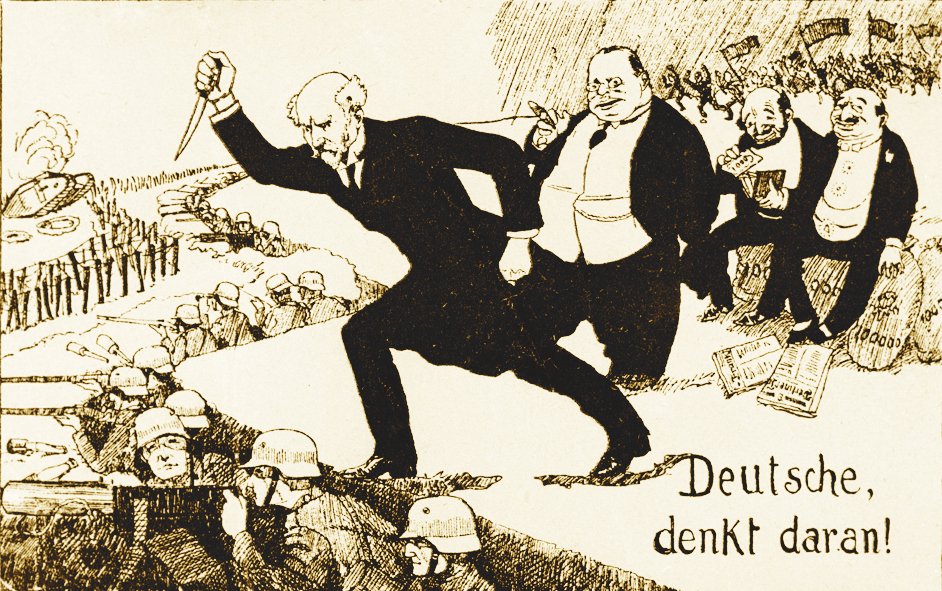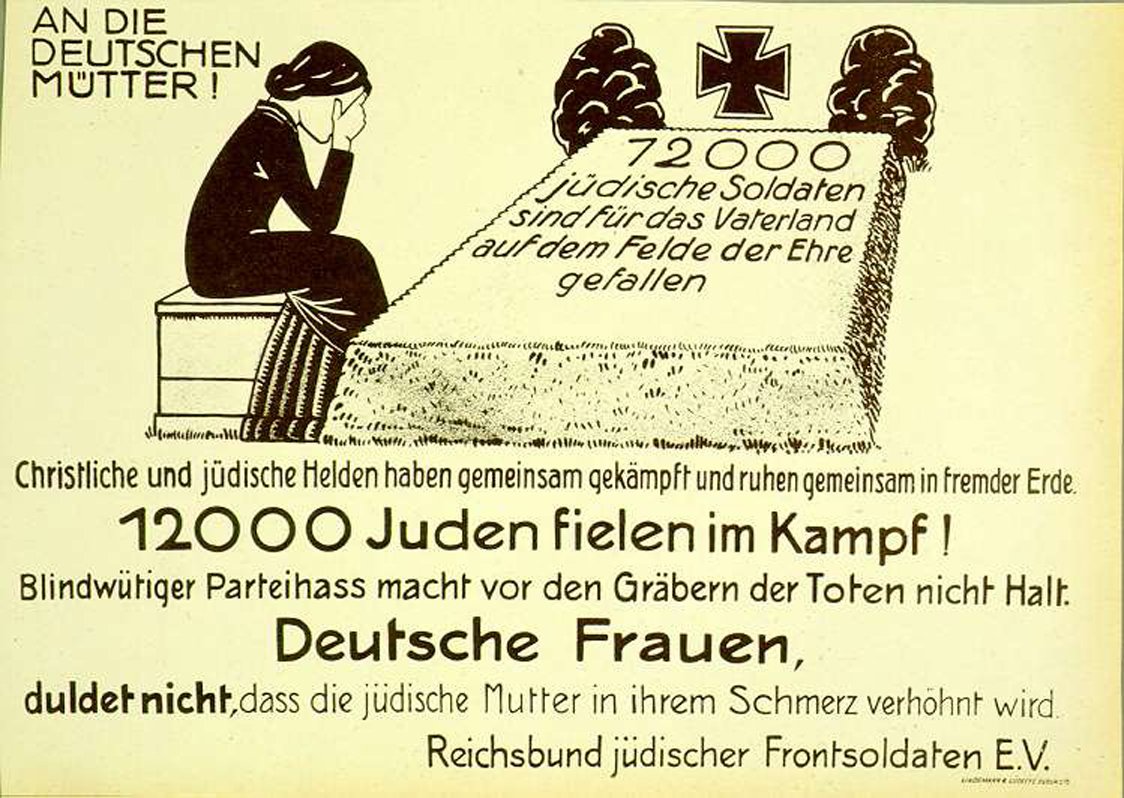In 1919, a parliamentary committee of inquiry interrogated the commander-in-chief of the German army, General Paul von Hindenburg, on the reasons why Germany had lost the First World War. According to Von Hindenburg, Germany had lost because the new German government had not supported him and had started peace negotiations. Moreover, the German army had been weakened by the revolutionary atmosphere in the army and in at home. He quoted an English general, who had allegedly said: ‘The German army has been stabbed in the back.’
The stab-in-the-back myth
Nov. 18, 1919 Berlin
Hindenburg’s quotation refers to the Stab-in-the-back myth. According to this conspiracy theory, the German army had not been defeated on the battlefield, but because social democratic politicians had signed the truce in order to take control. In reality, the army command had made mistakes and the German army was in no shape to keep on fighting. But generals like Hindenburg and Erich Ludendorff spread the story to avoid having to admit the mistakes they had made.
Right-wing extremist, nationalist, and antisemitic groups believed that this ‘stab in the back’ was the work of an international Jewish conspiracy.
Even during the war, fabrications were circulating about the supposed lack of patriotism among the German Jews. For that reason, the German government introduced a ‘Judenzählung' (count of Jews) in the army in 1916. It proved that the number of Jews fighting at the front was proportionate. The results of the investigation were not made public, though.
Slanderous propaganda such as the Stab-in-the-back myth contributed to antisemitism and hatred of the social democratic government. In 1921, members of a Freikorps murdered politician Matthias Erzberger, who had signed the armistice in 1918. Several Jewish and social democratic politicians were to fall victim to right-wing extremist assassinations in the years that followed.

